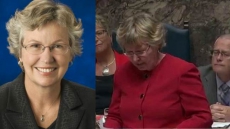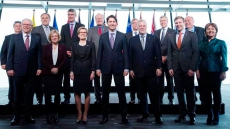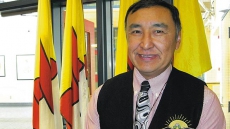OTTAWA — The Liberal government has launched one of the most expensive items in last month's federal budget — a $2-billion post-secondary infrastructure fund that wasn't even mentioned in the party's election platform.
In a budget that left out a number of marquee Liberal election promises, how did a big-ticket upgrade to university campuses elbow its way into the fiscal plan in only a few months?
It's a question lobbyists and interest groups are asking themselves as they try to figure out what makes the new Liberal government tick.
The government has committed up to $2 billion over two years to modernize university and college research facilities. Science Minister Kirsty Duncan kicked off the program's application process Wednesday.
Universities Canada pitched a similar idea to senior government officials in the weeks leading up to the March budget, framing the request as "strategic investments to strengthen research and innovation capacity," said the group's president and CEO.
The concept was well-received, Paul Davidson said in a recent interview.
"We said, 'Look, here is a solution that could work to create some immediate economic activity and then, more importantly, the foundations for long-term success' — and the government really did respond to that," said Davidson, whose organization represents 97 institutions.
"I think it's fair to say the conversation moved very quickly to: 'How could we do this and how fast could we do this?' "
The proposition from Universities Canada hit the right tone at precisely the right time.
Universities Canada wasn't alone. Over the winter, the senior government officials also held numerous discussions with individual universities as well as U15, a group representing Canada's 15 research-intensive universities.
In the weeks leading up to the budget, Finance Minister Bill Morneau's office was shopping for new ideas that would not only pump federal money into the economy right away, but also help Canada's competitiveness over the long term.
Morneau's staff summoned a list of possibilities from the department — and the university concept was on it.
The idea leapt to the top.
Since it first appeared in the budget, it has become a favourite for Morneau. He has frequently mentioned the fund as a way to help boost future productivity.
For Universities Canada, the notion to ask for the creation of a campus infrastructure fund also came late, Davidson said.
The group, he said, only added the recommendation to its wish list — as its top request — after watching the price of oil and the value of the dollar plunge in the months that followed the October election. It was tough stretch for the economy that also saw unemployment numbers rise.
Davidson did not discuss his meetings with Liberals in detail, but federal lobbying records show he met three times with Duncan, twice with Labour Minister MaryAnn Mihychuk, and once with Roland Paris, Prime Minister Justin Trudeau's foreign policy adviser.

He also sat down with other senior policy advisers and deputy ministers from several departments.
In his pitch, Davidson said he mentioned how the Conservative government committed $2 billion over two years for post-secondary infrastructure projects in 2009 as part of its stimulus response to the 2008 recession.
The Liberals replaced a Tory government that had spent the last few years trying rein in spending. They also rode to victory on a platform filled with billions of dollars in promises that caught the attention of interest groups.
Since the October election, the volume of lobbying activity in Ottawa skyrocketed — to the point that February shattered the one-month record.
That month — just prior to the budget — saw 3,021 lobbyist interactions with government officials and opposition MPs, according to data from the Office of the Commissioner of Lobbying of Canada.
The previous record of 1,978 was set in November 2014.
The relationship-building process with the Liberals has not been smooth for everyone.
Dan Kelly, the head of the Canadian Federation of Independent Business, said the group has had decent access at the ministerial level, but it failed to get a pre-budget meeting with a federal finance minister for the first time in its 45-year history.
What's more, they were blindsided by a Liberal budget decision to ice a key campaign vow that would have continued lowering the small business income tax rate to 9 per cent by 2019.

Instead, the government followed through on the previously promised move to lower the rate to 10.5 per cent, with additional cuts deferred indefinitely.
"The fact that we didn't meet with the finance minister was surprising, but not now that we know that that was what they had in store," said Kelly, whose federation represents over 109,000 small business owners.
"So, it feels like a giant burn."
With a new government in power, times have changed.
"Early reviews suggest that those going and asking for big cheques have found a more receptive audience today than they have in the past," said Kelly.
The group's new focus will be on reminding the new government at every turn of the importance of small business owners, he added.




